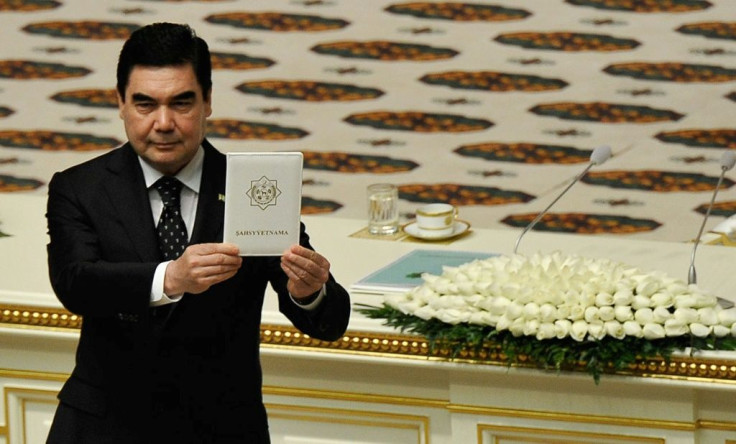Turkmen Leader Blames Corruption For Economy Woes, Sacks Minister

Turkmenistan's authoritarian leader has sacked his long-serving interior minister and blamed corruption for slowing the gas-rich Central Asian nation's economy, state media reported Wednesday.
Gurbanguly Berdymukhamedov, who frequently makes headlines with stunts including lifting weights in front of his cabinet, has in recent months stepped up his anti-corruption rhetoric.
The leader sacked minister Isgender Mulikov for "serious shortcomings" over his decade in the post, a state TV report showed.
A probe is being launched into graft at the ministry, the report added.
While official figures paint a rosy picture of the Turkmen economy, international organisations warn of a growing crisis linked to chronic over-reliance on hydrocarbons revenues.
"Despite 12 stern reprimands, the head of (the interior ministry) did not draw appropriate conclusions," Berdymukhamedov said of Mulikov.
The former dentist, who has ruled the ex-Soviet country since the death of his predecessor in 2006, appointed ex-communications minister Makmetkhan Chakiyev to the vacant post.
The president sacked his defence and national security ministers last year.
"Bribery and corruption violate the state and social system. As a result, economic growth slows down and serious obstacles arise in the development of the state," Berdymukhamedov said Wednesday, according to a state newspaper.
The International Monetary Fund has called for greater transparency and better economic statistics in Turkmenistan.
A report published earlier this year by the London-based Foreign Policy Centre think tank warned Turkmenistan was suffering "a sustained economic crisis that has seen hyperinflation in the lives of ordinary people and widespread food shortages."
Both Berdymukhamedov and predecessor Saparmurat Niyazov are feted by golden statues in the white marble-clad capital Ashgabat, testifying to a leadership cult that regularly prompts comparisons with North Korea.
© Copyright AFP 2024. All rights reserved.











